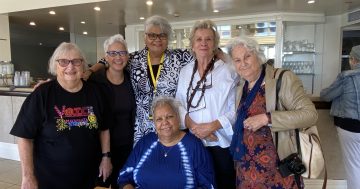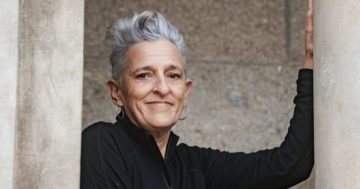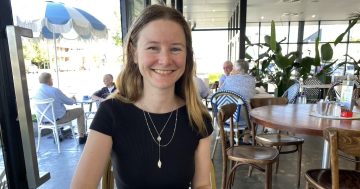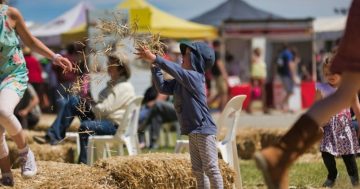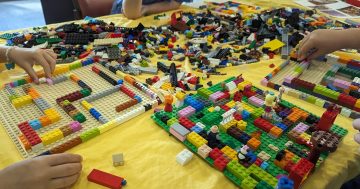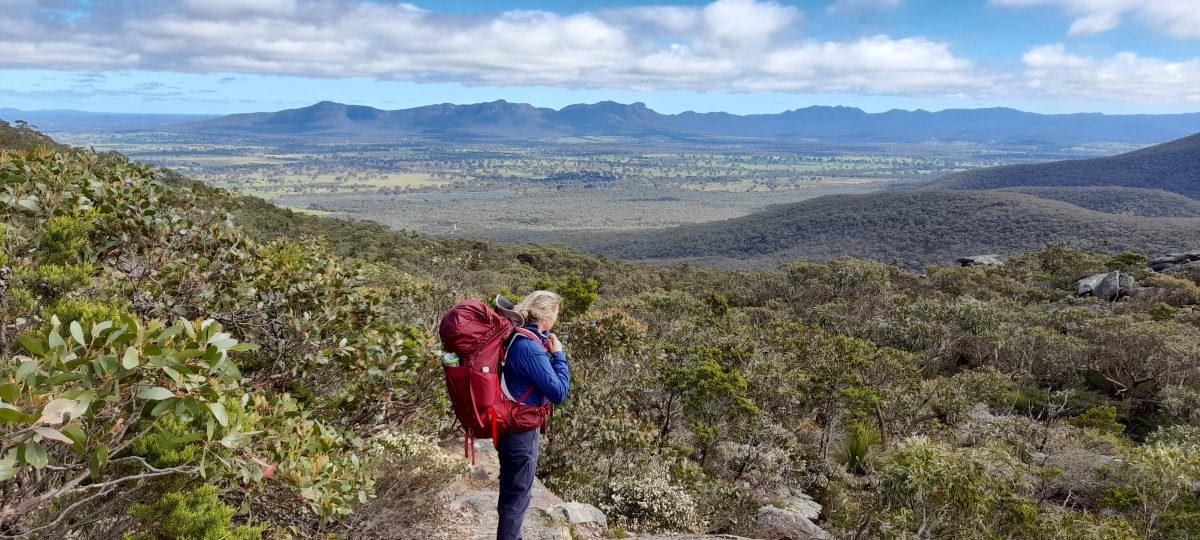
The landscape is central to the books of best-selling author Margaret Hickey, pictured hiking in the Grampians. Photo: Supplied.
Best-selling author Margaret Hickey has built a reputation for writing novels set in small regional towns. She will be talking about her latest book, An Ill Wind, at Eurobodalla’s three libraries in July.
The book is set in Victoria’s Golden Plains, northwest of Geelong. It is very windy, so a good setting for a novel about massive turbines.
Ms Hickey said wind turbines were causing controversy in unexpected circles.
While most people were pro-clean energy, the farming community could be divided. On one side were the farmers being paid to host turbines on their land. In the other corner were those whose views were impacted by the huge structures and received nothing.
Small communities’ divided views are one of the considerations Ms Hickey must balance when writing.
“I would never want to dismiss how people feel,” she said. “It is physically hard when beauty is impacted. If you live near one, it will affect you.
“I have never dismissed anyone’s concerns lightly when I have written this book, but at the same time we need turbines.”
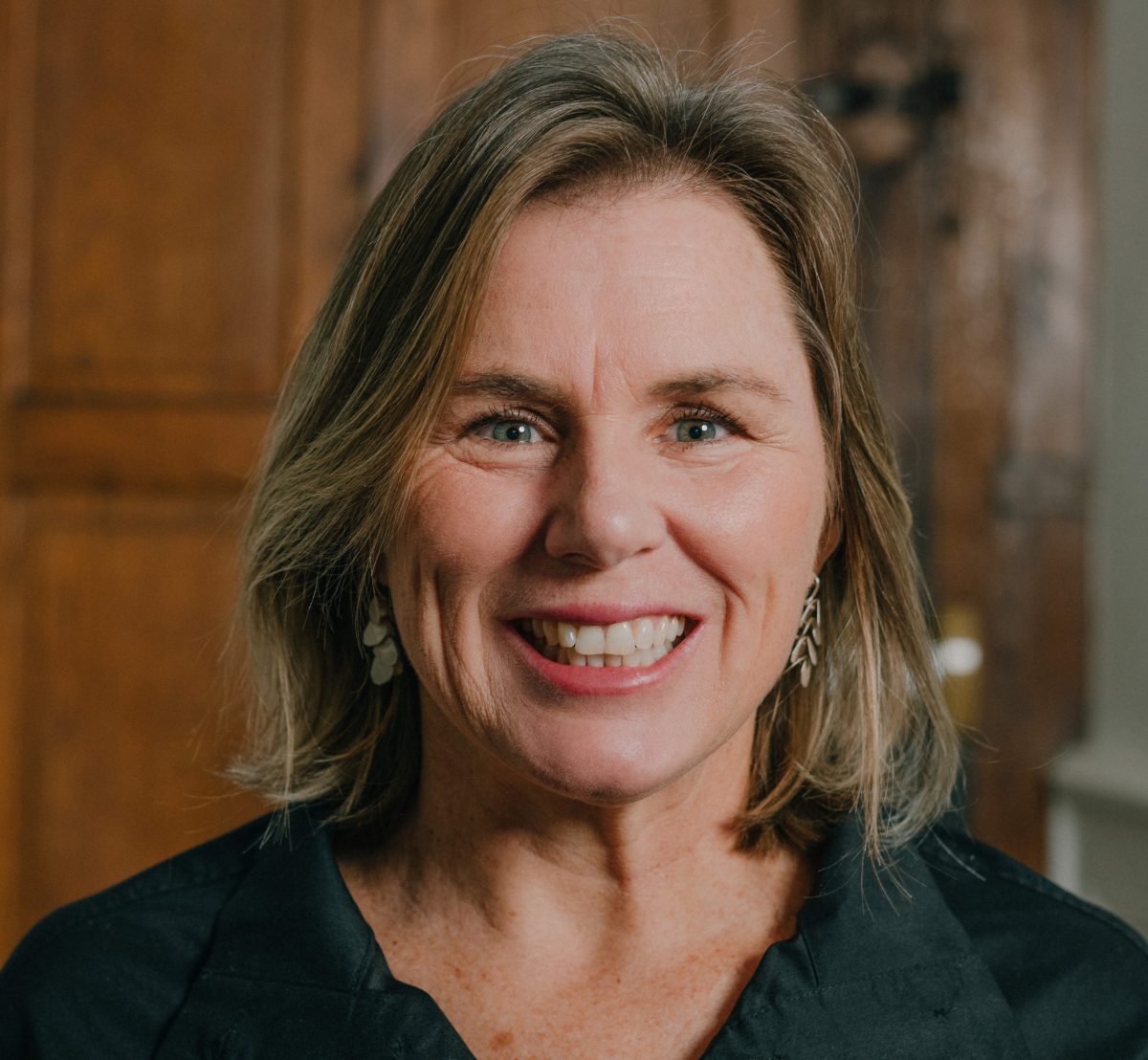
Margaret Hickey is an award-winning author and playwright who has sold nearly 200,000 books. She is speaking at Eurobodalla’s libraries in July. Photo: Supplied.
The landscape is central to her books.
“Whether it is fiction or non-fiction, the landscape is the first thing I think about,” Ms Hickey said. “It drives the plot and the characters.”
She said Dorothea Mackellar’s poem My Country which talks about “the beauty and terror” best encapsulated the Australian landscape. “It is magnificent and it can kill you and that is what makes it so awe inspiring,” Ms Hickey said.
Fellow Australian writer Jane Harper put that genre of landscape-based books on the map and it continues to grow in popularity.
Ms Hickey’s love of small country towns and landscapes was fostered from a very young age. Her father was the headmaster of small bush schools. Every two years they moved to a different small town. It meant she went to many schools and lived in many landscapes, be they rolling hills, expansive plains or limestone escarpments. Ms Hickey went on to spend the great majority of her life in small towns.
Ms Hickey said small towns were melting pots of cities because they drew a big range of people from different backgrounds.
While some country towns had plenty of visitors coming and going, strangers were unusual in others.
“No small town is completely alike,” Ms Hickey said. “We do a grave injustice when we pretend they are.”
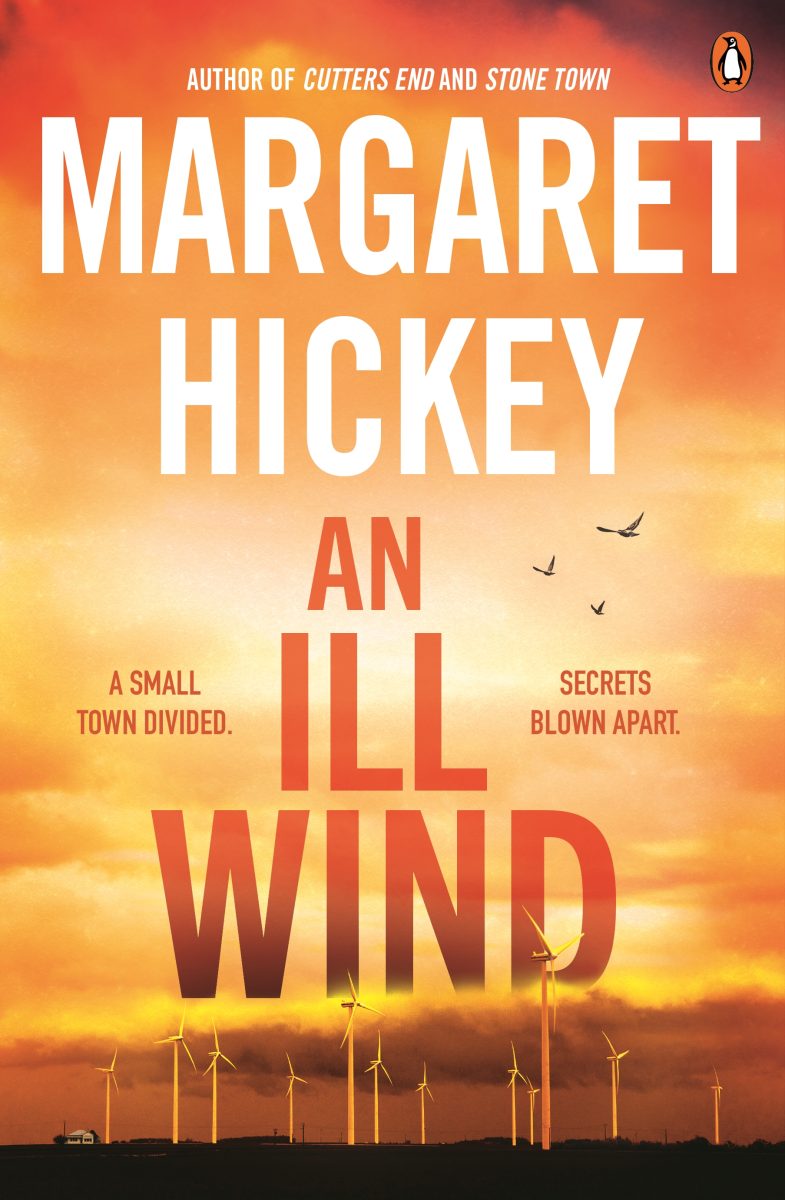
An Ill Wind is Margaret Hickey’s sixth book and her fifth crime novel. Photo: Supplied.
Another thing she must juggle is being true to a town’s identity without naming it.
“I often muddle them up slightly, so it could be a few different towns, but the region is true and the concerns are true.”
So, although as a child Ms Hickey camped at Mystery Bay with her family every summer holiday, and she and her husband regularly holiday at Tathra and Depot Beach, she would have to spend more time in the region to write a book about it, something she would be very keen to do.
Her books are always set in places she knows well, and it is important to her to ensure the feel of the place is authentic.
By training, Ms Hickey is a schoolteacher. She wrote for literary magazines, and penned short stories and plays on the side. After completing her PhD in creative writing, she was a lecturer in the humanities for 10 years before returning to teaching. She now teaches Year 12 students English in a regional school.
“I think it makes me a better writer, being out in the real world and hearing real dialogue.”
Ms Hickey does not plan her books in detail.
“I usually find out who the killer is at 50,000 to 60,000 words,” she said. “It isn’t the most economical way of writing, but it isn’t rare either. If I planned it in detail, I would not enjoy it so much.”
Ms Hickey will speak about her gripping new novel at Batemans Bay Library on Tuesday 8 July at 5 pm, and on Wednesday 9 July at 10:30 am at Moruya Library and at Narooma Library at 2:30 pm. The 90-minute talks are free, but bookings are essential.








